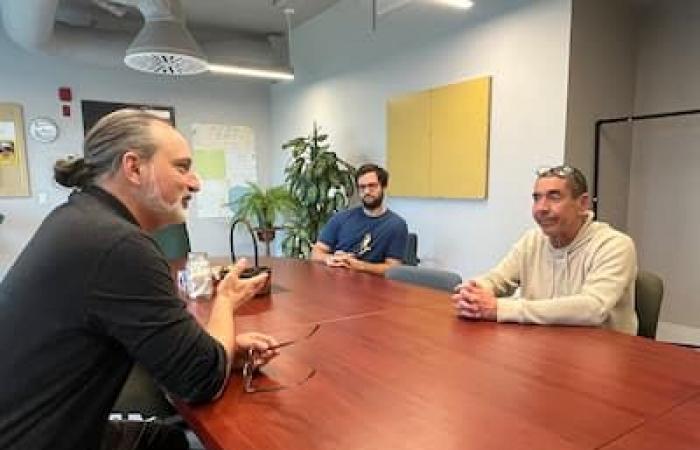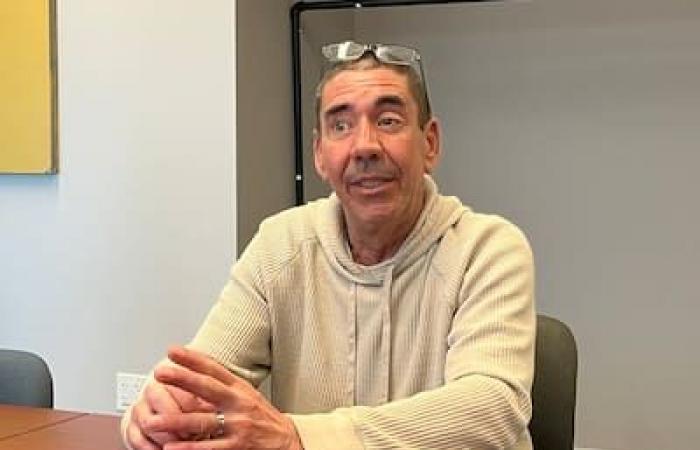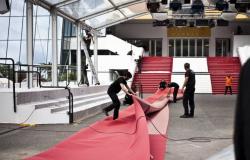The establishment of a new program which aims to get out of dozens of people in homelessness for decades of the street each year in Quebec is going on even better than expected, according to the CIUSS of the Capitale-Nationale.
Since the end of March, the sixth floor of Lauberivière, reserved for the roaming and mental health reaffiliation program (PRISM), welcomed its first residents. The newspaper had the opportunity to make an exclusive visit to the new installations.
This new initiative was announced in November by the Quebec government with recurring funding of $ 1M for five years. It targets some of the “heavy and chronic” travel cases of Quebec City to offer them a free roof, food and mental health treatments for two to three months.

Now attitted only on the Prism program, the sixth floor of Lauberivière has 24 furnished rooms like this to accommodate heavy cases of chronic roaming during the duration of their treatment. Photo Le Journal de Québec, Vincent Desbiens
The objective of this approach is then allowing them to make a gradual return to housing and civil life, whether under supervision in an intermediate resource or in a subsidized apartment.
“For some, I have been working here for 24 years and I have seen them in the street for 24 years. I would never have thought that they could have convinced them to be helped, “said the Lauberivière clinical coordinator, Frédéric Lapointe, adding that seven of the 24 furnished rooms on the floor are currently occupied.

PRISM program managers are all very satisfied with the successful establishment of the new accommodation and treatment program, which is now part of the roaming service offer in Quebec on the same model as what has existed for a few years in Montreal. Photo Le Journal de Québec, Vincent Desbiens
“Honestly, we expected many more challenges,” admits the deputy director, partnerships and homelessness, Frédéric Keck. There is a good receptivity. We knew that it was an offer of services necessary for a fringe of the population which was a little left aside. ”

The deputy director, partnerships and roaming of the CIUSSS-CN, Frédéric Keck, is delighted to finally be able to offer complete treatments to a clientele so far from the system that it is extremely difficult to direct it to traditional front line services. Photo Le Journal de Québec, Vincent Desbiens
-Selection process
CIUSSS speakers, such as the Liaison team coordinator, Anthony Vaillancourt-Deschênes, have the task of “selling the idea” of a unit processing process to people who have lived in the streets for sometimes more than 20 years.

The coordinator of the Liaison team of the CIUSSS of the Capitale-Nationale, Anthony Vaillancourt-Deschênes, argues that people in a situation of targeted chronic roaming are much more receptive to the idea of being treated that one could not believe. Photo Le Journal de Québec, Vincent Desbiens
“We are in contact with several resources for traveling people,” he explains. It helps us target the individuals who could benefit from this aid most. We must then meet these people and establish a bond of trust. It is certain that it soothes the fears when you get out of a long episode of roaming, to know that you have the opportunity to have a room and three meals a day for several months. ”
“It did not first come, first served,” continues Frédéric Lapointe. There is a selection committee that examines the files carefully. Then, we do a complete evaluation of each profile to ensure that you offer good treatments. ”
Forgotten
For the Lauberivière clinical coordinator, it is a “great pleasure” to be able to offer support to people with the situation so precise that they used to pass between the meshes of the net.

The Lauberivière clinical coordinator, Frédéric Lapointe, argues that he is pleasantly surprised by the peaceful cohabitation between people who are used to living in the street for decades. Photo Le Journal de Québec, Vincent Desbiens
“Sometimes they were people who wanted help, but for whom there was no resources. We spend so much time off the fires they were forgotten. With the PRISM program, we now have teams dedicated to their treatment 24 hours a day. ”
Do you have any information to communicate to us about this story?
Write us to the address or call us directly at 1 800-63SCOOP.













